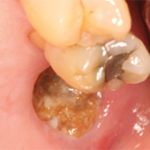NEW YORK (Reuters Health)—Anti-fracture medications do not reduce overall mortality in older patients with osteoporosis, according to an updated systematic review and meta-analysis.
“This meta-analysis suggests drug treatments, including treatment with bisphosphonates, for osteoporosis should be recommended only for the prevention of fracture and not for any additional reduction in mortality,” researchers write in JAMA Internal Medicine, online Aug. 19.1
In an email to Reuters Health, first author Steven Cummings, MD, FACP, of the University of California, San Francisco, notes that “many observational studies have reported, and many experts believe, that taking bisphosphonates, the most common treatment for osteoporosis, reduces mortality and doctors may be hearing that. If it is true, then clinicians should prescribe them to all older patients, regardless of their risk of fracture. We found that the most rigorous studies, randomized trials, don’t support that. Clinicians should prescribe them only to reduce fracture risk.”
The meta-analysis included 38 randomized, placebo-controlled clinical trials that studied drug treatments with proven anti-fracture efficacy, used agents at the approved dose for treatment of osteoporosis and had a duration of at least one year.
The trials included more than 100,000 adults with osteoporosis, with 45,594 randomized to placebo and 56,048 to treatment. There was no significant association between receiving a drug treatment for osteoporosis and overall mortality rate (risk ratio: 0.98; 95% confidence interval, 0.91 to 1.05; P=0.56), the researchers report.
There was no evidence for heterogeneity of the associations with mortality, even though the studies included diverse types of drugs (bisphosphonates, denosumab, selective estrogen receptor modulators, parathyroid hormone analogues, odanacatib and romosozumab).
An analysis limited to 21 clinical trials of bisphosphonate treatments, with 20,244 taking placebo and 22,623 active treatment, also found no significant association of treatment with overall mortality (risk ratio: 0.95; 95% CI, 0.86 to 1.04; P=0.17).
In the six trials of zoledronate, with 6,944 taking placebo and 6,926 active treatment (5 mg of zoledronate every 12 to 18 months), the overall mortality rate was also not statistically significant (risk ratio: 0.88; 95% CI, 0.68 to 1.13; P=0.31). However, there was evidence for heterogeneity of the results, the researchers say.
This meta-analysis, they note, is much larger and includes many more recent clinical trials than a meta-analysis from 2010 that found a 10% reduction in mortality. It also explored subgroups of drug therapies, specifically, zoledronate treatments, as well as clinical trials lasting three years or more.
The current meta-analysis also differs from a more recent one of 61 clinical trials of bisphosphonate treatments that also reported a 10% overall reduction in mortality. However, the analysis included 32 clinical trials for cancer and only 22 for osteoporosis as well as clinical trials without placebo controls, Dr. Cummings and colleagues point out.


